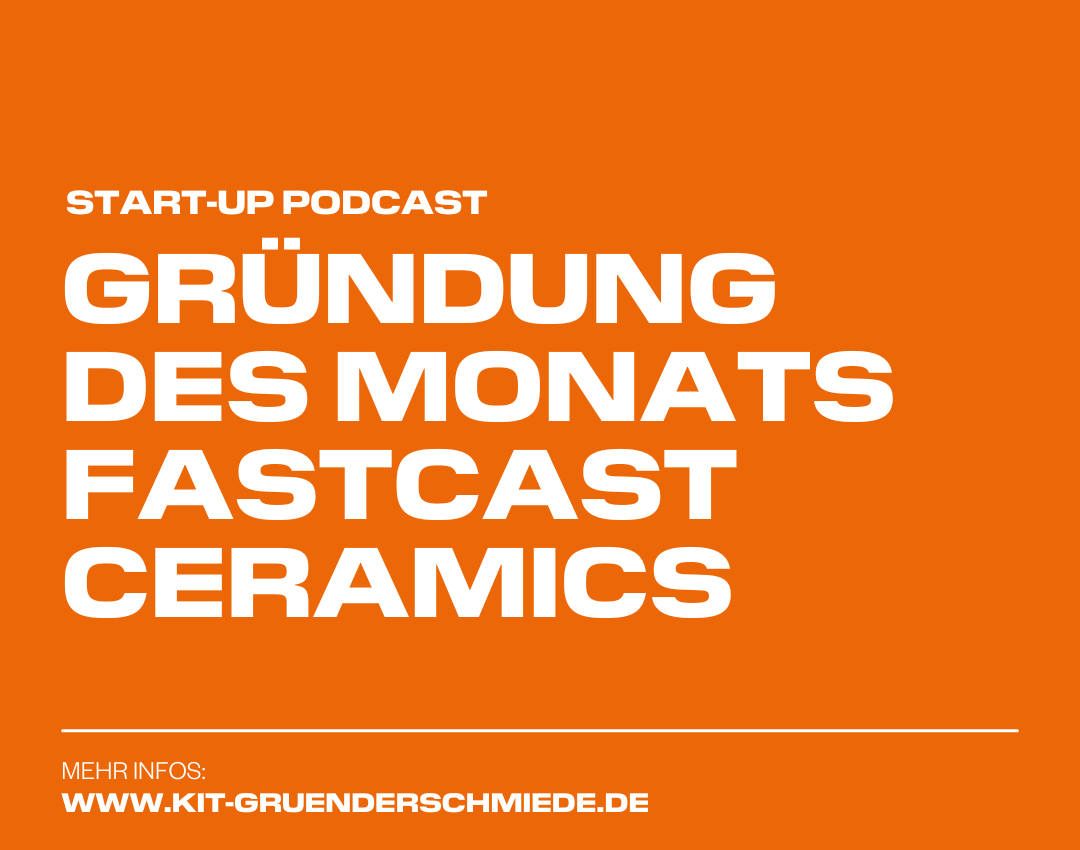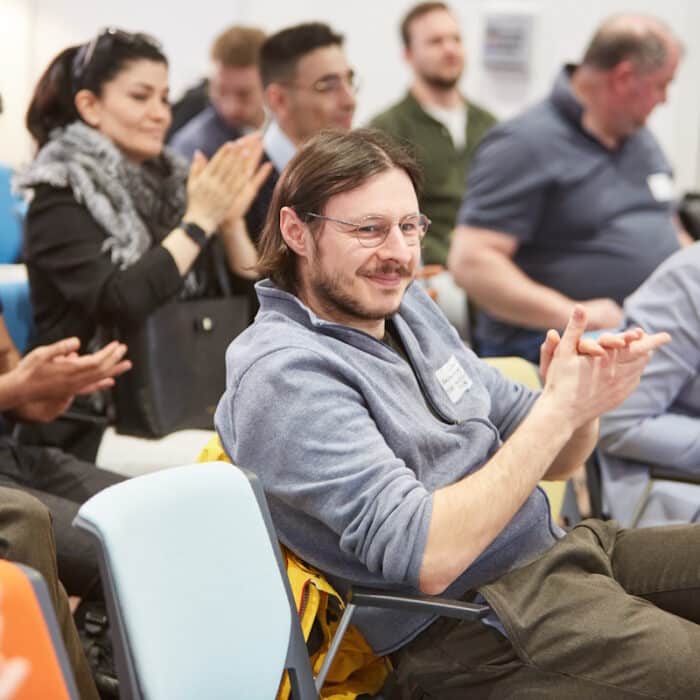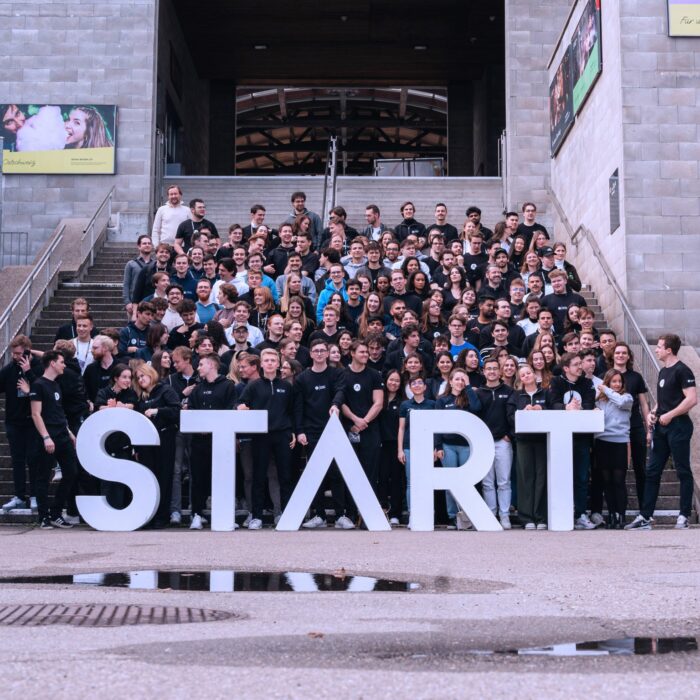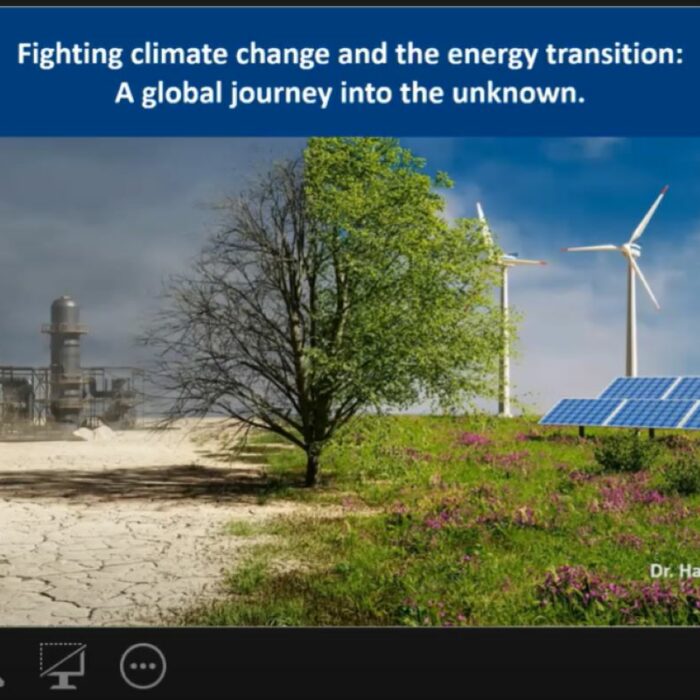Foundation of the month: FastCast Ceramics
17.11.2022
Daniela Musial-Lemberg
Founder of the month
Ceramics with passion: That is the business promise of FastCast Ceramics. The KIT spin-off has developed a method for producing open-pored porous ceramics. Find out more here.
What does your company stand for?
We at FastCast Ceramics have developed an innovative method for the production of open-pored porous ceramics. We will use this method in the investment casting industry. Millions of ceramic disposable moulds are consumed there every year for the production of metallic components. Today, the production of these ceramic shells is costly and time-consuming.
In investment casting, the components to be cast are first produced as wax patterns in an injection moulding process. The wax parts are glued together to form a so-called wax tree. In the conventional production of ceramic shells, the shell is dipped in a ceramic slip, sanded and dried. This time-consuming process has to be repeated about ten times to produce a sufficiently thick layer and today takes about ten days.
With our technology, this process is significantly accelerated. Thicker layers are applied to the wax model per dipping process without cracking during drying. This means that only three to four dipping processes are necessary to create a sufficiently thick layer. Sanding is not necessary at all. This means that the shells can be produced in two days, which brings numerous advantages for the investment caster.
Where and how did you come up with the brilliant idea to found the company?
There wasn’t really any such thing as a brilliant idea. Moritz had already dealt with the topic of open-pored porous ceramics in his master’s thesis and later even more intensively in his doctoral thesis. Due to his family background, he already had a great deal of prior knowledge about various casting processes and techniques. This is how he came to bring together the two topics of “ceramics” and “investment casting”. The idea of founding a company accompanied him throughout his doctoral studies, even though the focus during this time was on research. Afterwards, he worked as a post-doc at KIT and continued to promote the idea of founding a company.
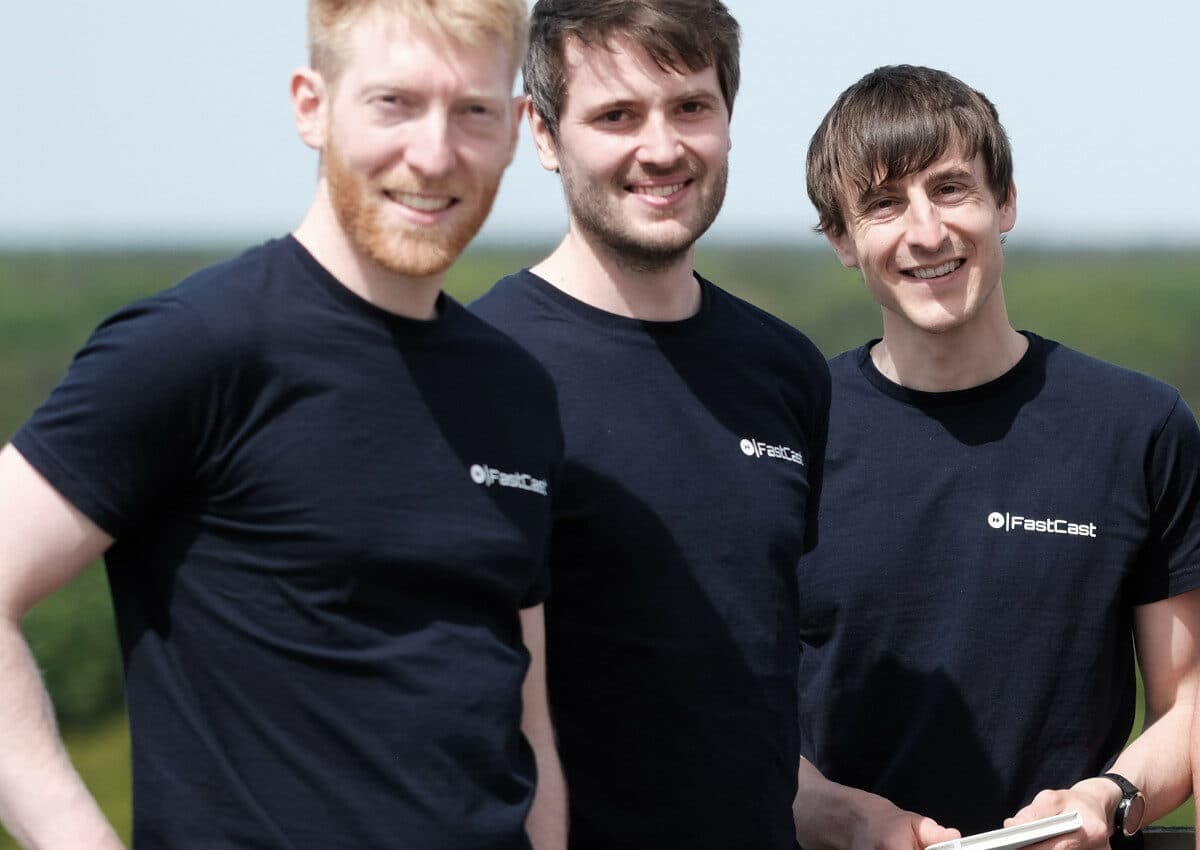
How did the founding team come together?
After the idea of founding a company was born by Moritz, he approached David, his successor at the Institute for Mechanical Process Engineering and Mechanics. David was enthusiastic about the idea and was won over to the FastCast project. He, in turn, told his friend Wolf, whom he knew from his student days, about the idea. Both studied mechanical engineering together in Aachen and therefore know each other well. Wolf was also enthusiastic about the topic and joined FastCast. Johannes has also been on board the team since April. He became aware of FastCast through a job advertisement. An initial lengthy phone call was followed by further conversations where everyone could get to know each other before both sides expressed the desire to realise FastCast’s vision together in the future.
However, the team consists of far more people than the four (future) founders presented. We are supported by numerous graduates and student assistants in the development of our ceramics.
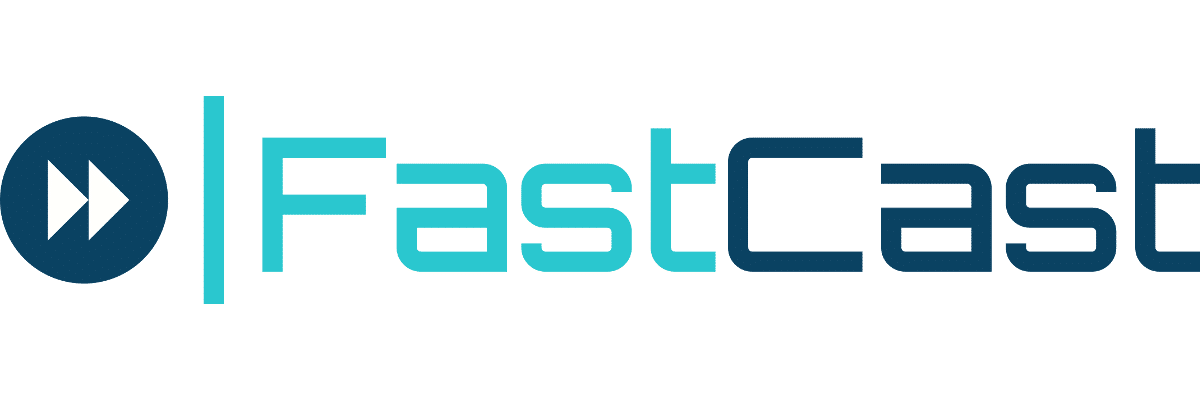
Where do you see the hurdles in the start-up process? Where did you seek support?
There are a few hurdles and challenges in a start-up process; and not all of them are foreseeable. One challenge for us is certainly product development. Usually, investment founders have one or two dipping basins in which the wax models are dipped into the ceramic suspension. If a changeover is made to our solution, our customers must be able to rely on us 100%. This applies to both the quality and the quantity of the ceramic suspension. We have to and want to meet the high demands of investment casters in order to be a reliable partner in the future.
Investment casting is one of the oldest casting processes in the world – the processes are correspondingly established in the industry. As a young start-up with a new idea, we therefore encounter a relatively conservative industry, which makes market entry particularly exciting. A central task in communication is therefore to create acceptance and trust in our technology and in us as people. We try to achieve this through a fresh appearance, coupled with a great understanding of the challenges and processes in the investment casting industry, as well as through early testing of the product by the investment casting companies already during product development.
We receive support from numerous sides. One should mention the exchange with experts from the industry as well as potential customers. They provide valuable feedback and also openly address what they see as critical points. It is also important to talk to other start-ups that are in a similar phase or know them from the past. The KIT’s Gründerschmiede also offers advice and support.
Basically, it’s good to keep your ears and eyes open, and to take in and evaluate input and feedback from conversations without bias.
What was one of your biggest challenges during the founding phase?
Here, too, the challenges are manifold. However, communication plays a central role. The team has to get to know each other, understand what makes each individual tick and what ideas each team member has. What is the motivation of each individual to found a company? What aspects of the company to be founded are important to each individual? What does each member expect from himself and from the others in the future? What vision does each individual have for FastCast? How do we as a team manage to develop a vision with which everyone identifies and for which we are all burning?
It is important to treat each other with respect and trust so that open and unbiased communication is possible. It is important that every member can (and should) express his or her opinions and views openly. All these are central building blocks for such an exchange to succeed. After all, a shared vision also helps to overcome other challenges.
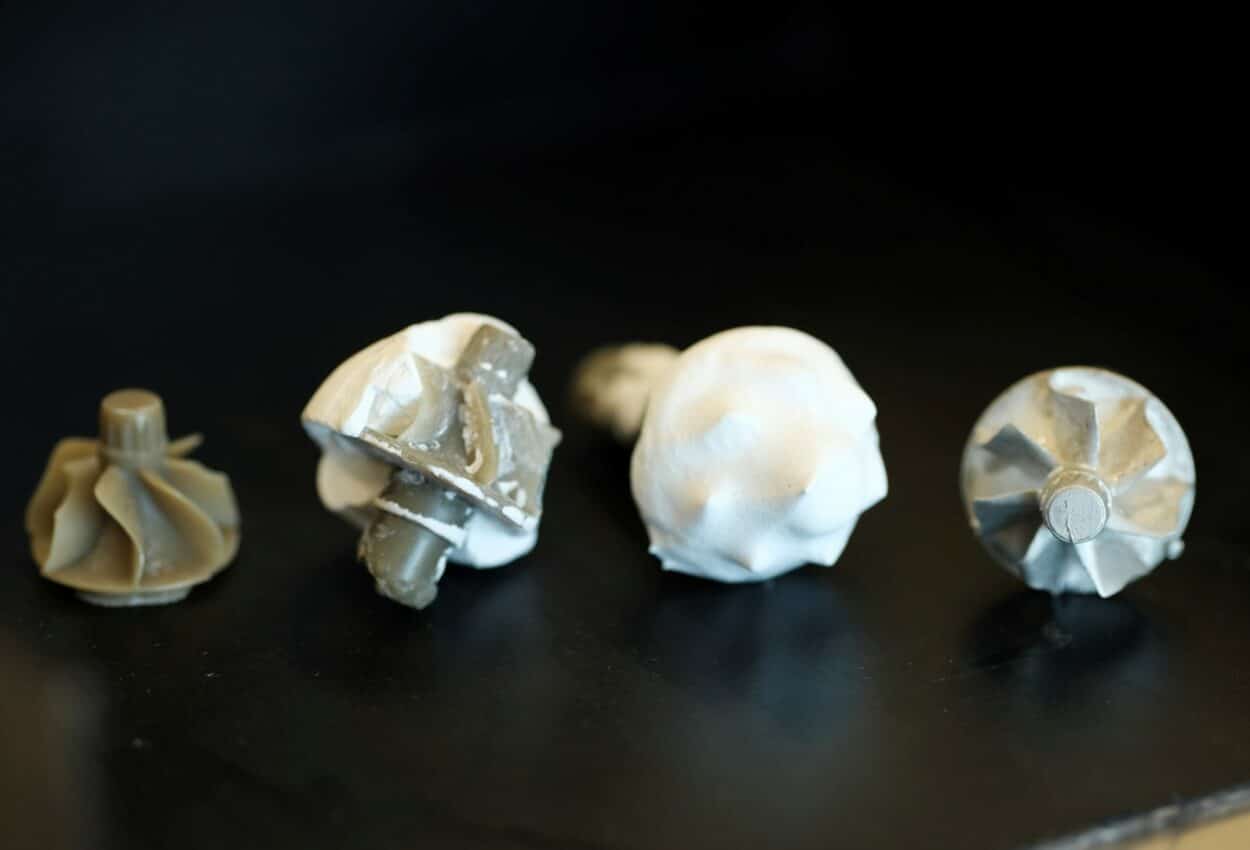
Has Corona had an impact on your start-up/industry so far and if so, what?
Corona has certainly had an impact on everyone, we are no exception. As a team, we try to deal with the situation as best we can. A central task for start-ups is to be able to deal with challenges of different kinds and to find solutions. It’s the same with Corona: we find a solution.
What qualities do you think a founder should have?
There is certainly no one characteristic that founders have to have. What is important is a high level of identification with the idea, the product and the vision of the company to be founded. The ability to communicate is certainly a central building block that contributes to success. As a founder, you should have a fundamental desire to shape and change things; you should always want to learn new things and be able to deal with unknown situations flexibly and pragmatically. A high level of commitment, perseverance and frustration tolerance are also valuable. And: you must not be afraid of failure.
Do you have any practical tips for other young entrepreneurs?
Open and honest communication within the team and with potential customers is important. Both create transparency and trust. It is also important to build up a network. And: Dare and do things!
What would you perhaps do differently from today’s perspective?
From our point of view, it is still too early to answer this question.
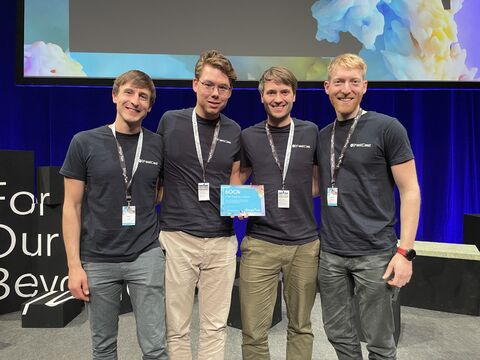
What are your plans for the future? What are your next big milestones?
This year we are conducting some pilot tests with industrial partners. We need to make these successful so that we can then take further steps. A big milestone for the beginning of 2023 is the founding of the company. Furthermore, we are looking for follow-up financing. We are currently fortunate enough to be funded by the EXIST research transfer programme of the Federal Ministry for Economic Affairs and Climate and the European Social Fund for Germany, which will run until September 2023.
Parallel to this, we will be working on setting up a production facility. To this end, we are already in contact with various actors from the surrounding area.
You have already successfully participated in competitions. How important are the competitions for you?
Participating in a competition always makes us think about our presentation content, adapt it and improve it. Every competition brings us a bit further. The atmosphere at competitions is also special. The ideas and visions of other start-ups always motivate and inspire us anew.
Awards are naturally a recognition of the work done so far. In the summer we were named the winner of the Neuland competition and in October we received an investment offer from High-Tech Gründerfonds at the Stage Two event in Berlin. Such awards naturally push and encourage us to continue on our path. As a young start-up, we also benefit from the media attention that such an award generates. Nevertheless, in the end we have to develop a reliable product, because that’s what the customer will buy.
Thank you very much for the interview!
PODCAST!
Listen to our podcast episode with Moritz.
